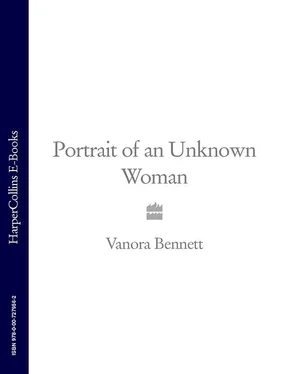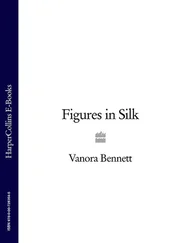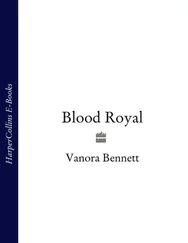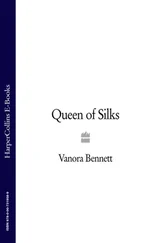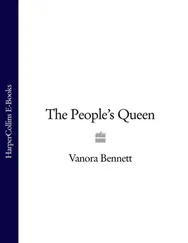Still, none of the tutors we had after John Clement had ever become my special friend. Nor did anyone seem to have remembered to look for a husband for me through all the alliance-making of the past few months, which had taken up so much of Father’s time and effort on everyone else’s behalf. That had left me all the time in the world to feel nostalgic about John Clement, who I still believed had loved me most, once, however impossible it now seemed given that all we’d heard about him for years was the occasional mention in a letter from Basel or Bruges from one of the learned friends who didn’t come to the house any more.
Until yesterday. (It seemed incredible that it had been just a day, and here I was with my heart in my mouth already waiting for a sighting of him.)
Yesterday, when Elizabeth suddenly leaned forward at the end of dinner. It was a casual day; Dame Alice didn’t bother so much about Bible readings when Father wasn’t there, and Elizabeth’s strangle-voiced new husband William had left the table to write letters. She gave me a meaningful look down her straight nose, and said, quietly, so only I could hear, ‘I saw John Clement in London.’
I practically choked on my posset. But I kept my face composed.
‘What do you mean?’ I asked. ‘He’s in Italy, studying for his MD. Isn’t he?’
‘Not any more,’ she said.
Elizabeth was one of those women I would never be: not a thinker, but small, neat and with alluring manners; catlike in the sense that she always landed on her feet and made it look effortless. She was the prettiest of the More daughters and the worldliest. She reeled in William Dauncey, with his Adam’s apple and substantial income, on the basis of one evening at a court function and some demure-looking flirting; she got Father to place him in a sinecure job in the Duchy of Lancaster office right after their marriage and she was already fishing for better placements for him. I’d known from the first moment I saw her, when we were children, that we would never be close. I didn’t like to think it was just envy of her milky skin and blankly beautiful features that made me imagine her as the kind of person who’d always get her own way, and who would be as spiteful as a scratching kitten if she didn’t. I preferred to think that I’d spotted a deep-seated mean-spiritedness in her that I knew I could never love. And now it flashed through my mind that her meanness might just stop her talking if she saw me wanting desperately to know what she had to say.
Still, I couldn’t resist trying. Casually, very casually, I asked: ‘How interesting. What’s he doing now?’
‘He’s a server in the King’s household for the moment. He’s been back in London since he qualified last summer.’ She paused. She always knew the details of people’s positions. ‘He says Father got him the job.’
We both let Father’s omission in telling us that important fact pass, and our shared silence drew us closer. Some things were best left unsaid. There had been a lot of eloquent pauses in our household since we moved to Chelsea.
‘He was at a dinner Father sent us to last month, right after the wedding. Part of this plan to get William and Giles seats in the next parliament.’ (I tried, not completely successfully, to still the twinge of envy that this casual mention of her wifely plans set in motion inside me.) ‘We were in the Duke’s chambers and Father was called away suddenly to read something for the King before we even went in to dinner,’ she paused again, looking at her golden ring, ‘and then John Clement turned up. I nearly died of shock …’ She stopped and looked out of the window. There was sunlight beating down on us. ‘It’s hotter than you’d expect for the time of year, isn’t it?’ she went on, even though the inside of the room, bare of decoration still because there’d been no time to commission drapes and pictures yet (hence the Holbein portrait idea) was actually draughty and rather cold. ‘He looks older,’ she said, and there was something a bit wistful in her face. She twisted the wedding ring on her finger. ‘I saw quite a bit of him after that, actually.’
She’d been back for three days. Father had sent her and Cecily home on Sunday evening, earlier than they’d expected, to help prepare for the painter’s arrival. I’d hardly seen her. She’d kept to her room and her prayers and whatever whispered conversations young married women might have among themselves, but she hadn’t sought me out. Why had she held on to this piece of information for so long? And why was she telling me now? I could sense that, in her devious way, she was probing for some reaction from me. Not knowing what reaction she could be looking for made me feel uneasy, and stubbornly unwilling to give an inch.
‘He’s not going to become a “total courtier” too, is he?’ I asked. Eyes firmly down on my own ring-free hands. Erasmus’ nickname for Father when he first saw him on the King’s business had stuck. I laughed a tinkling girlish laugh, which sounded forced to my ears. Elizabeth didn’t seem to hear its falseness, but she wasn’t in a mood to laugh. She was looking gentler than usual, playing absentmindedly with her spoon in the ruins of the dish of beef that (with more than her usual birdlike appetite) she had demolished. She just smiled.
‘I don’t think so – he can dance, though, did you know? – but he says he wants to practise medicine soon. He’s trying to join the College of Physicians.’
‘And does he have a family?’ I asked. Holding my breath.
Perhaps it was a mistake to ask the question direct. Remembering to look modestly down at my hands again, I found they weren’t where I’d left them. My fingers were plucking at my brooch. To cover my embarrassment, I took the whole thing off and put it down on the table.
She shook her head, and a little smile appeared on her face, like a fisherman’s look as he starts playing the fish he knows is hooked at the end of his line. She bit her lip, then looked up at me, with her demurest public look. ‘He said he would love to see the new house. He said he’d come and visit us.’
I waited. I’d gone too far. I wasn’t going to ask when. I concentrated on the sunlight in the garden.
The silence unsettled her. ‘He was asking after you, actually,’ she went on, unwilling to let go, and under the flirtatious eyelashes sweeping her cheeks I could sense anxious, watchful eyes. ‘That was when he said he’d come and see us.’
‘Oh,’ I replied, feeling my heart secretly leap, and suddenly confident too that I could get off the hook of her questions. I shrugged, almost beginning to enjoy the game. ‘I doubt we’d have anything to say to each other any more, now that we’ve finished with school … though,’ (and here I smiled noncommittally) ‘of course I’d like to hear about his travels.’
‘Oh no,’ she answered. ‘He was particularly interested in you. I was telling him how you’d become a medical miracle and practically a doctor yourself. I told him how you’d cured Father’s fever by reading Galen. He liked that.’
I did cure Father once, a few years ago. And I did consult Galen. De differentiis febrium , the book was called; on the difference between fevers. It was when Father came back exhausted and hot and sweating and fitting from one of his diplomatic trips to France, and none of the doctors who came to the house could do anything for him. They all loved it when I pronounced that he had what Galen called tertian fever. But the truth is I couldn’t appreciate Galen – what they called heroic doctoring, with lots of recommendations to purge and bleed your patient and show off in your diagnosis – it seemed like hot air to me. All I did was quietly give him a simple draught of willow-bark infusion that I’d bought on Bucklersbury. One of the apothecaries told me it would cool his blood. It did – he was up and about again within a day. I couldn’t tell any of them how easy it was, though; they’d have thought me simple-minded. It was easier to let them go on believing in Galen’s three-day fever.
Читать дальше
